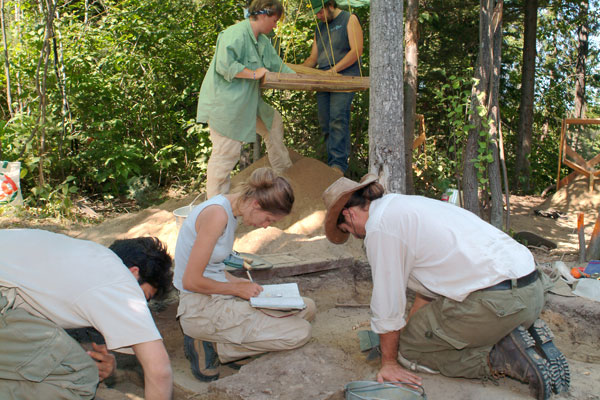An introduction to Québec archaeology

It’s important to understand the past, since it determines in great part what our society has become.
Archaeology is often the only tool available for discovering our most distant origins. The archaeologist’s role is to observe authentic facts and then interpret them.
What exactly is archaeology?
- The environmental developments
- The history of lifestyles
- The rituals and beliefs
Today, at the dawn of the third millennium, the material traces of the past are more present than ever in Québec. They are frequently unearthed on construction sites and public work projects, both in the north and south of the province. As the world continues to change, archaeology has taken on broader dimensions and has extended into new fields, such as:
- Town planning
- Urban development
- The environment
- Architecture
- And industry
The traditional image of an archaeologist painstakingly removing earth with a trowel or brush is no longer totally exact. Archaeologists can also be seen busy at work, with boots in the mud and wearing a hardhat, on vast construction sites.
The myth of the archaeologist as a treasure hunter needs to be put to rest definitively. Archaeologists are interested in any trace left by humans, no matter how small it may be. Using rigorous methods and analyses, they seek to understand how these humans once lived.
Teamwork
Archaeologists rarely work alone. In the field and in the laboratory, they are always surrounded by a team of assistants and archaeological technicians that they direct somewhat like a conductor conducting an orchestra.

Photo: Archéo-Québec, Jacques Beardsell. Archaeological digs in Dégelis.
- Geology
- Geomorphology
- History,
- Material culture
- Conservation
- Zoology
- Soil science
- Surveying and geomatics
- As well as other archaeologists and digger
